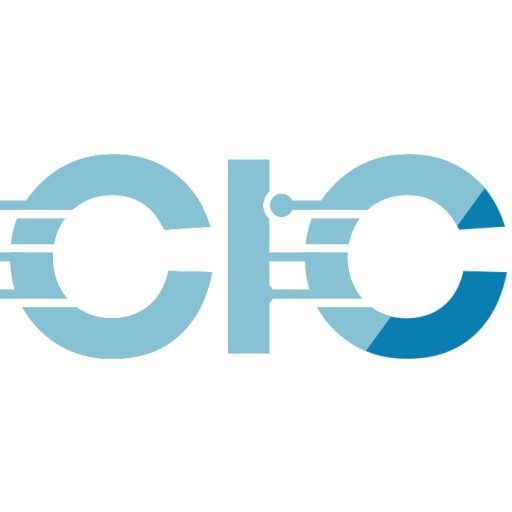Support CleanTechnica's work through a Substack subscription or on Stripe.
The torrent of oral diarrhea coming out of the mouths of MAGA maniacs all day and all night is mostly designed to solidify the position of fossil fuel companies. They have generously funded the current insurrection as a means to tear down the rules and regulations that hamper their business activities. They have been the prime movers behind the notion that government is the problem and the only path forward is to destroy the hated bureaucracy and all the rules and regulations it has created to protect the Earth.
Right now, it seems the fossil fuel industry is getting its way. The failed administration is on the brink of eliminating the “endangerment finding” that classified carbon dioxide as a greenhouse gas subject to regulation. It is buttressing that initiative by telling NASA to shut down satellites that measure the concentration of carbon dioxide in the atmosphere and by interrupting the ability of the Mauna Loa observatory to track carbon dioxide levels.
If we can’t measure carbon dioxide levels, then the whole problem of global warming goes away. This is equivalent to sticking hot pokers in your eyes so you can’t see the forest fire bearing down on you or turning off your radar so you can pretend there are no icebergs in your path.
But there’s one thing the fossil fuel thugs forgot — changes in technology. According to legend, on December 31, 1899, the head of the US Patent Office is supposed to have told friends and colleagues, “Everything that can be invented has now been invented.” Here are two examples of new technologies that will help the world overthrow the fossil fuel curse regardless of who occupies the Offal Office.
Hyundai Applies For New Solid-State Battery Patent
Solid-state batteries have been in development for decades. Compared to conventional lithium-ion batteries, they promise significantly higher energy densities, faster charging, and longer battery life. They also have the extra advantage of being virtually immune to thermal runaway events, what ordinary people call battery fires. Being largely experimental, they do not yet enjoy the economies of scale that will make them cost less than conventional batteries, but that will come. In the meantime, batteries with higher energy densities are just what are needed for applications where weight is an issue — such as electric aircraft.
According to Electrive, Hyundai has applied for a patent on a new solid-state battery technology that uses copper anodes. Copper is one of the best conductors of electricity, but is corroded by the sulfides that are used in many solid-state batteries. As a result, researchers have had to rely on other materials like stainless steel or nickel, both of which cost more and are less efficient at conducting electricity.
What researchers at Hyundai have done is devise a coating for the copper that protects it from sulfides, but doing so is no easy task. This coating “could deliver significantly better adhesion, letting it stick together longer and have more durability,” the company says, while also maintaining capacity over more charge–discharge cycles.
The new battery is a layered design that consists of a copper collector, protective coating, anode, sulfide electrolyte, cathode, and terminal collector. Using copper is expected to lower costs while resulting in a battery with high conductivity and improved stability.
The buffer is formed from a carbon sheet with oriented carbon materials, potentially vertically aligned carbon nanotubes, combined with lithiophilic metal particles such as silver, gold, or aluminum. As the patent specifies, the buffer layer “may have a porous structure” and maintain stability even when fully charged, helping to suppress lithium deposition at the edges of the anode and ensuring more uniform cycling.
Hyundai is pursuing several avenues in its quest to create commercially viable solid-state batteries, including a research partnership with Seoul National University. In January, the Hyundai Motor Group said it planned to start a pilot production line for solid-state batteries at its Uiwang Research Institute. Last year it filed for a patent on solid-state battery technology it developed with Factorial Energy in the US.
Orbis Axial Flow Motor

Also this week, Orbis Electric introduced HaloDrive, an axial flux motor suitable for use in heavy duty vehicles that is characterized by its modular, four-part architecture that features innovations like an injection molded plastic stator and a tunable gearset. “This system delivers strong levels of performance, efficiency, and configurability — maintaining high torque and power density with greater thermal stability,” according to Business Wire.
The company says its new HaloDrive should offer a high level of performance, efficiency, and configurability with high torque and power density and improved thermal stability. With a torque density of 100 Nm/kg, the HaloDrive is said to outperform conventional radial and axial flux designs and offers the torque of a V8 engine. Cost is the key to replacing fossil fuels. Orbis claims its axial flux motors are as much as 35% cheaper than the radial flux motors in use today and have an energy efficiency of 97%.
Axial flux motors differ from the familiar radial flux motors in the orientation of the magnetic field in the stator. Axial flux motors are often more like a disc with a significantly larger diameter than a comparable radial flux motor, but they are much shorter. Power and torque density are also usually higher, which is why axial flux motors are often lighter and more compact.
The company says the HaloDrive motor has been “piloted by leading passenger vehicle OEMs for in-wheel propulsion systems.” It is not limited to in-wheel applications, however. It can be installed at any point in a conventional driveline. It can also be used as a generator, which means it could replace diesel-powered refrigeration units installed in semi-trailers.
“When replacing diesel powered units, HaloDrive delivers up to a 100% reduction in diesel refrigeration fuel consumption and emissions, and is 90% less expensive to operate. Installed on the driveshaft or an axle, the HaloDrive motor converts the truck’s braking energy into cost-saving electricity to power mobile refrigeration without dependency on plugging into the grid,” Orbis says.
“Our vision with HaloDrive is to significantly advance how businesses transition to electrification by removing electric motor barriers such as deployment costs, material and manufacturability risks, and performance limitations,” said Chance Claxton, CEO of Orbis Electric. “With HaloDrive, we offer a high-performance axial flux motor that is not only highly efficient and powerful but also environmentally sustainable.”
Drip, Drip, Drip
The steady drip, drip, drip of technological change is what will drive a stake through the heart of fossil fuels. For decades, they banged the drum for letting the marketplace decide. But now that alternatives are cheaper, they have changed their tune and are demanding governments protect their hegemony with mandates. In other words, there is absolutely nothing these two-faced, lying bastards won’t do to protect their business model.
They own the Congress. They own the White House. They own the Supreme Court. But there is nothing they can do to stop the march of progress. There is panic within the boardrooms of the world’s fossil fuel companies. They know their days are numbered and they are terrified. Good, let them be. They are about to be swept away in a flood of low cost, high efficiency technologies that will make their wasteful ways as obsolete as the hand crank. We can’t wait to see them go bankrupt and disappear.
Sign up for CleanTechnica's Weekly Substack for Zach and Scott's in-depth analyses and high level summaries, sign up for our daily newsletter, and follow us on Google News!

Have a tip for CleanTechnica? Want to advertise? Want to suggest a guest for our CleanTech Talk podcast? Contact us here.
Sign up for our daily newsletter for 15 new cleantech stories a day. Or sign up for our weekly one on top stories of the week if daily is too frequent.
CleanTechnica uses affiliate links. See our policy here.
CleanTechnica's Comment Policy


